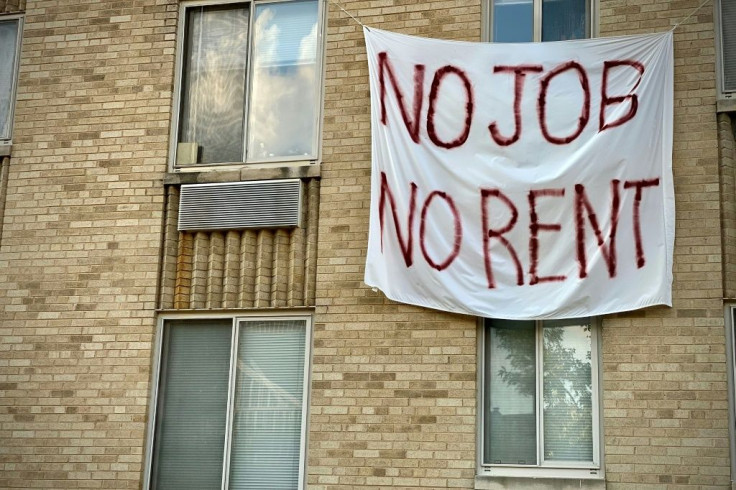Landlords To Ask Supreme Court To Lift Eviction Freeze

The U.S. Supreme Court may soon be asked to lift the nationwide eviction freeze imposed by public health officials, which has so far shielded tens of thousands of families facing financial hardships from the economic devastation caused by the pandemic.
About 10.7 million adults living in rental housing were behind on rent, according a Center on Budget & Policy Priorities' report; and renters owed about $57 billion in back rent in January, said a report by Moody's Analytics. The eviction ban by the U.S. Centers for Disease Control and Prevention (CDC) is set to expire June 30 and has drawn multiple legal challenges.
U.S. District Judge Dabney Friedrich in Washington, D.C., had earlier this month ruled in favor of landlords and blocked the ban. But the judge also stayed the ruling while the Justice Department appealed, meaning the eviction ban will stay until the ruling could be reviewed by a higher court.
On Monday, a group of landlords said in a letter to Friedrich that they intend to ask both the intermediate appeals court in Washington and the Supreme Court to overturn her stay.
Caleb Kruckenberg of New Civil Liberties Alliance, a lawyer for the landlord group National Apartment Association and several individual landlords, argued that the eviction moratorium made his clients unable to “use their own property.” On Friday, he asked a panel of three judges in the 11th U.S. Circuit Court of Appeals to to issue a preliminary injunction allowing evictions to proceed.
Judge Friedrich had found that the CDC had exceeded its authority in imposing the moratorium. "The question for the court is a narrow one: Does the Public Health Service Act grant the CDC the legal authority to impose a nationwide eviction moratorium? It does not," Friedrich had written.
The CDC imposed the temporary ban after Congress was unable to come to a deal on extending the provisions of a previous moratorium last year, and it stems from an executive action signed by former president Donald Trump. The order applied to those who qualified for direct stimulus payments in the 2020 March relief bill.
The CDC’s eviction moratorium was imposed to prevent a COVID-19 spread in overcrowded homeless shelters and living spaces by helping distressed tenants remain in their homes. The challengers argued that the agency’s current public health outlook negates the reason for the eviction pause.
“Although the CDC once feared that people who gather indoors after being evicted will spread COVID-19, the CDC has concluded that the threat of spreading the disease indoors is so low that vaccinated Americans do not even need to wear masks or socially distance ‘in any setting,’” the landlords wrote in a four-page letter to Friedrich. “All renters in the United States are eligible for the vaccine — and, according to the CDC’s own data, most adults have already received at least one shot.”
If the landlords succeed in their legal challenge, tens of thousands of tenants who are behind on rent could be in danger of eviction.

A joint publication by the WHO and the US Centers for Disease Control and Prevention (CDC) said that following years of decline until 2016, measles cases had since surged Photo: AFP / Fabrice COFFRINI






